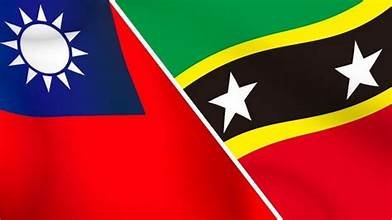Statement by the Government of Saint Kitts and Nevis Regarding Heightened Tensions in the Taiwan Strait
Paragraph 1: The Taiwan Strait Crisis and International Reactions
The Taiwan Strait has become a focal point of geopolitical tension, particularly following China’s military exercises, codenamed "Strait Thunder," around Taiwan. These drills have raised concerns about China’s intentions toward the island nation, which it considers a breakaway province, and have prompted responses from countries around the world. The international community is navigating a complex situation, balancing support for Taiwan’s de facto independence with the desire to avoid escalating tensions with China, a major global power. The situation underscores the delicate balance of power in the region and the importance of peaceful conflict resolution.
Paragraph 2: Saint Kitts and Nevis’s Stance on Taiwan’s Sovereignty
Saint Kitts and Nevis has taken a firm stance on the Taiwan issue, expressing strong support for the island nation’s sovereignty. In a statement, the government affirmed its commitment to the principle of self-determination and the peaceful resolution of disputes. It emphasized Taiwan’s right to engage with the international community as a recognized sovereign state, with all the rights and responsibilities that such recognition entails. This position reflects Saint Kitts and Nevis’s belief in the importance of respecting the democratic aspirations of the Taiwanese people.
Paragraph 3: Saint Kitts and Nevis’s Solidarity with Taiwan
Beyond verbal support, Saint Kitts and Nevis has demonstrated solidarity with Taiwan during the period of heightened tension. The government expressed its unwavering support for the Taiwanese government and people, emphasizing their right to exist free from coercion and intimidation. This expression of solidarity underscores the close relationship between the two nations and highlights the importance of international support for Taiwan in the face of potential threats.
Paragraph 4: The Principle of Self-Determination and its Implications
The principle of self-determination, which lies at the heart of the Taiwan issue, is a cornerstone of international law. It grants all peoples the right to freely determine their political status and pursue their economic, social, and cultural development. This principle is particularly relevant in the context of Taiwan, where the majority of the population identifies as Taiwanese and desires self-governance. The international community’s response to the Taiwan Strait crisis will have significant implications for the future of self-determination movements around the world.
Paragraph 5: The Importance of Peaceful Conflict Resolution
The escalating tensions in the Taiwan Strait highlight the critical need for peaceful conflict resolution. All parties involved must prioritize diplomacy and dialogue to avoid any actions that could further destabilize the region. The international community plays a vital role in encouraging peaceful engagement and mediating disputes between China and Taiwan. Finding a resolution that respects the rights and interests of all stakeholders is essential to maintaining regional stability and preventing conflict.
Paragraph 6: The Future of Taiwan’s International Status
The Taiwan Strait crisis brings into sharp focus the question of Taiwan’s future international status. While Taiwan operates as a de facto independent nation, it lacks full recognition from many countries due to China’s claims over the island. The international community faces the challenge of balancing its relationship with China, a major economic and political power, with its commitment to democratic principles and the right to self-determination. The evolving situation in the Taiwan Strait will likely have significant implications for the future of cross-strait relations and Taiwan’s place in the international community.
Share this content:












Post Comment